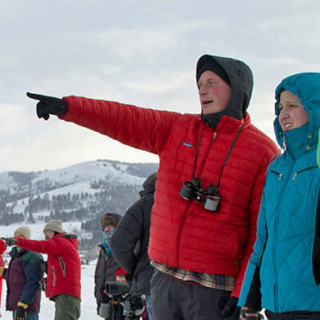Student Spotlight: Daniel Salois

In Episode 59 of Confluence, we hear from Daniel Salois, a Ph.D. student in the School of Education studying Counselor Education and Supervision. Daniel talks about his path to the field of counseling and his research on helping college students incorporate positive psychology techniques into their lives.
Story Transcript
I have a fascination with performance psychology and then that sort of led to like this world of how do we push ourselves mentally to become the best that we can be. And so, that drove me to the master’s degree in clinical mental health. I think you sort of have to have to have an innate fascination with human nature and then if you start with that, learning about counseling and going from there and how to best help people that are struggling is pretty powerful.
My name’s Dan Salois and I'm studying counselor education and supervision at the doctoral level and that’s in the School of Education.
My research has really focused on trying to find ways to improve the state of mental health, specifically on college campuses. And so right now, we're specifically focused on how can we improve the mental health of University of Montana students. And so, what we've done—we being me and my dissertation chair, John Summers Flanagan—is he’s created a class called the “Art and Science of Happiness.” And the class is based on positive psychology techniques. It's based on health and wellness, evidence-based interventions that can be done by college students every day, every week, that are shown to make people a little bit happier. And we've got some promising data already that suggesting if you take this class, however happy you think you are right now, by the time you finish, you're likely to be a little bit happier or potentially a lot happier.
The course has three big components. So, I come in, I'm sort of an assistant and a researcher, might do some guest lectures, that kind of thing, but my role is really collecting data. And so, what that looks like is the students get there on day one or week one. And we give them a handful of surveys that are meant to assess all kinds of different levels of wellness from their physical wellness, their emotional wellness, how happy they are socially, how mindful they are, those types of things. And then, the content within the course is based on, of course, these interventions, these concrete things that you can do. The assignments are literally to go do those things. And each student in the course is assigned a personal consultant AKA a graduate student in counseling. And so, they get to literally try on these interventions and then they go and meet with a personal counselor. And they can talk about anything within those sessions, but they can also talk about like, here's what we're doing in our happiness course. Here's why I loved it. Or here's why I didn't like it. And here's what I want to change. So, I can make it even better for me or more personalized to me. And then at the end of the course, I come in again collect more data get both quantitative and qualitative feedback from them and sort of look at that. And then we tailor the course again for the next year. The big picture for this course is to make it as good as it possibly can be for the University of Montana students. But we're also starting what's called the Montana Happiness Project and that's going to be developing curriculum for schools, for hospitals, for families, on strategies to promote wellness within that. And so, this course is sort of step one in all of that.
We have an incredibly supportive faculty and advisors in the counselor education department and that's probably the biggest reason I decided to come and do my doctoral program here.
The sort of, faculty have created a culture that's one of authenticity, I think. And so, since they've created this culture at the top of like, let's make this fun, let's make this powerful, let's help people. At the end of the day, it trickles down into all University of Montana students that are affiliated in any way with like, the counseling program. So, it's really a top-down, like, culture that is sort of, I think, affects more people on campus than we would probably realize.
